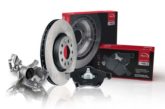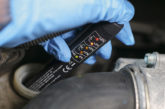If 2016 was a tumultuous year for politics in the UK and the USA, says Neil Pattemore, then 2017 is going to be an equally important and pivotal year for European automotive legislation concerning the aftermarket.
We are at a crossroads concerning the future direction of the aftermarket. In the past, challenges were met with the dictum, ‘the aftermarket has always found a way’, however this is no longer the case – the world is changing, and we are entering the fourth industrial revolution, one based on digital data.
Whoever controls the access to the digital (in-vehicle) data controls the market. The new ‘digital services’, both directly in the workshop or via remote (wireless) access, will be the future business models for the aftermarket.
The existing legislation, in the form of Block Exemption and Euro 5, is designed to support competitive choices for consumers. It ensures that access to repair and maintenance information is made available by vehicle manufacturers to independent operators. So, the question is: what is the European legislator doing to ensure that this situation can continue in the future?
Almost by coincidence, the current vehicle type approval framework legislation is presently being reviewed. However, the new draft legislation has important elements omitted in the carry-over from Euro 5, such as reference to the 16 pin connector and pass-through programming for passenger cars. Fortunately, the European Aftermarket associations have worked with the European Parliament to table amendments, so hopefully these omissions will be reinstated. However, of greater concern are the recommendations from a study requested by the European Commission, and conducted by Ricardo AEA in 2014. The study analysed whether the vehicle manufacturers were correctly implementing the Euro 5 legislation. A significant number of non-compliances were reported, with recommendations of how the legislation should be updated.
However, even two years later, and with the current review of the Euro 5 legislation, the European Commission is still not planning to include any changes to address the Ricardo Report’s recommendations.
So why is this? Probably because the Commission doesn’t want to cause a delay to the application of this new vehicle type approval legislation – legislation that includes elements preventing another ‘VW scandal’ – which had previously implicated the European Commission for not having sufficient provisions in place. In other words, the Commission wants to ensure that it cannot be seen as complicit.
Furthermore, following a 14-month analysis of the possible technical requirements for an ‘interoperable, standardised, secure and open-access’ platform providing remote access to in- vehicle data, as proposed by the eCall legislation, the Commission has appointed TRL to conduct a study to assess three possible solutions:
1. To enhance the in-vehicle interface (effectively a better OBD connector);
2. To develop a data server platform (which would include the vehicle manufacturers’ ‘extended vehicle’ concept that controls all access to the vehicle and what data may be provided); or
3. To improve the standardised interoperable in-vehicle open- access platform.
The Commission has proposed that the current draft of the new vehicle type approval framework should not include any changes to the updates needed from Euro 5, or the recommendations from the Ricardo Report. Instead, everything should wait for the TRL Study report and address all the various needs, sometime in the future.
These are seen as separate and future requirements that will be influenced by other investigations encompassing a wider range of issues, such as the single digital market, data platforms, data privacy and vehicle cybersecurity.
These are complicated subjects that have already caused much debate and which do not easily fit into type approval legislation. However, if vehicle manufacturers control access to the vehicle and the in-vehicle data (with the control and monitoring threats that come with that), the independent aftermarket will be under severe threat. This may be even more important than the Euro 5 legislation, as it will be the basis for future independent and competitive vehicle repair business models.
However, if the current draft type approval legislation does not include the Euro 5 updated requirements, then the aftermarket is disadvantaged. This means, more than ever, that a united stand is needed from the aftermarket, to back the European Aftermarket associations, in their fight for new legislation to support the independent aftermarket and, ultimately, consumer choice of where a vehicle is serviced and repaired.










